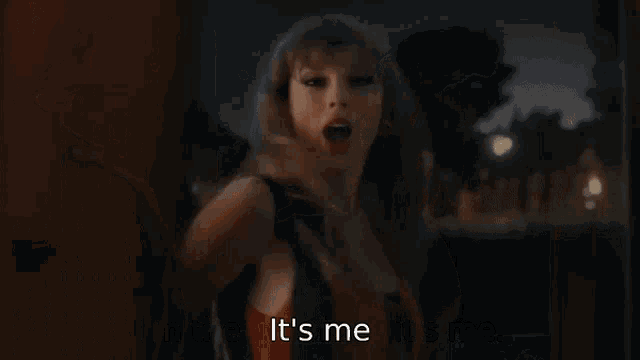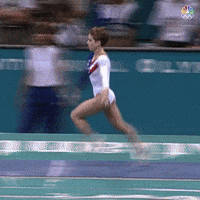when is enough enough?
Simone Biles Rising, The 2024 Olympics, and and how our 'more' mentality is killing us.
Like many, I’ve always been fascinated by the grit of the world’s top performers.
Steve Jobs
Taylor Swift
Oprah
on and on, it’s what draws me to shows like WeCrashed or The DropOut or movies like Ashton Kutcher’s Jobs or Michael Fassbender’s Steve Jobs or The Disaster Artist, which isn't necessarily about a top performer but is still very, very good and a fascinating portrayal of creative spiraling all the same.
I could go on.
In these, we see a pattern emerge. Brilliant creative + pressure to succeed = a willingness to do anything, at any cost. Sometimes at the expense of others, often at the expense of ourselves.
It’s a beautiful disaster, and we’re all enablers.
With this kind of drive, you have to ask yourself how much is innate vs. societal pressure. Are people like Steve Jobs and Elizabeth Holmes born slightly diabolical, clever geniuses whose bad behavior we overlook in the name of brilliance? Are they simply passionate about their work, and it’s us who pushes them into a position of power and influence and then demands that they rise up and up and up until there’s nothing left to do but fall?
Or were they always this way? I suspect the answer is somewhere in between.
So I think about this a lot, mostly because I’m not a creative genius and while I think I have a strong work ethic and a brutal stubborn streak, I know I’m not made of the same stuff as someone who will work 80 hour weeks in the name of innovation, or claw their way to the top in the scrappy kind of way required of these things. I’ve done this in the past, in my early twenties while building my PR company, but to find that grit again would be impossible. I know too much and also, I’ll be honest, I’m exhausted.
And so, I’m stuck between a desire to be Someone and a reality where I’m not, instead choosing to watch it play out in others.
I am the problem.
This came up most recently when watching Simone Biles: Rising, an incredibly candid look at Biles before, during, and after her historic Olympic event in 2020 in which she (quite responsibly) left the competition after getting lost in the air, in what’s known as a case of the Twisties.
The Cleveland Clinic describes the twisties as “a mental block that creates a dangerous disconnect between mind and body while gymnasts are airborne.”
“All of a sudden, there’s a disconnect in the feedback loop,” Matthew Sacco, a sports psychologist at the Cleveland Clinic, explained. “The brain and body are no longer communicating efficiently, and that causes a gymnast to lose sense of where their body is in space while they’re in the air.”
The cause “can be a little bit of everything and anything,” Sacco noted, including doubt, stress, and the quest for perfection—especially when athletes are competing at high levels. -Time Magazine
This is what I want to focus on:
I want to focus on the drive it takes to be the type of athlete who even gets to the Olympics in the first place and what we, as a society, demand of those athletes. The way we turn them into a circus, treating their blood, sweat, and tears as forms of entertainment. How they cease to be human beings and instead become objects of distraction.
This begs the question, why? On the surface, the answer is simple: We want more. We demand more. We require more. We as a society are fixated on this idea of more/better/stronger/faster, and it is quite nearly killing our athletes.
But then, isn’t that what we’ve always done?
We see it in the bodies of our athletes, the stress on their faces just before they perform, and in the skills they’re asked to excel at time and time again despite the wear it takes on their bodies, mind, and soul.
In one part of the Simone Biles documentary, they talk about Kerri Strug and her self-sacrificing act of performing at the Olympics on a fractured ankle.
It’s incredible. Heroic. Historical. But that Strug ever felt she had to do this in the first place —that her ankles were ever so weak, her body under so much stress that it fractured, to begin with, speaks to a much larger problem. That we have turned this kind of painful sacrifice into the rule and not the exception is alarming, to say the absolute least.
This is what we’ve done to the sport.
And it’s not just gymnastics. It’s all sports. It’s all of life. It’s not enough to do your best anymore. You must be exceptional, sacrifice, and be more.
And if not? Well. You’re out of luck.
And so, we demand these things of ourselves, and if not ourselves, then our athletes, our entrepreneurs, and our celebrities. We demand more, more, more until they’re broken, bleeding, and damaged. We demand more until we grow bored or tired or disgusted and move on to the next, discarding the heroes we once thought so highly of.
We raise them up, just to tear them down.
We have become a society of more. I don’t know how to fix it, but I do know the first step is acknowledging that it exists—that it’s become too hard just to live a quiet life, pay your bills, go on a walk without your phone, listen to a podcast without overthinking it, read a book without getting distracted, enjoy the little things that make life worth living.
It’s good to strive to be the best version of yourself. To challenge ourselves. But most of us are not doing that. Instead, we’re drowning in versions of ourselves we don’t even want to be and forcing others to fulfill the expectations that we can’t.
And for what? What is the end goal? At one point is it ever just enough? At what point do we look to ourselves and the little life we’ve built and say, you know what, enough is enough? I’m happy.
I don’t know. I’m just as bad as everyone else; always searching, seeking, hoping for better. I don’t have the answers. But I want to. And maybe that’s the first step.






Oh my GOSH I am so lucky to have come across this post… I have a post scheduled for this Friday afternoon that talks about my experience as a lifelong competitive swimmer and how everything I did for that sport is crumbling down on me now that I’ve retired from it. It focuses on mental health in terms of physical expectations (identity, accomplishments, weight gain, body dysmorphia, etc). I love your post. It hit home for me. Athletes have so much pressure to be more more more better better better and it kills us in the end. It becomes so much of our identity that 1) we fall under the pressure and 2) once the pressure is gone we feel purposeless.
Not nearly enough people are talking about this! And it’s seriously a HUGE problem! Thank you for bringing this to light.
I’d love it if you checked out my post this Friday ❤️❤️❤️